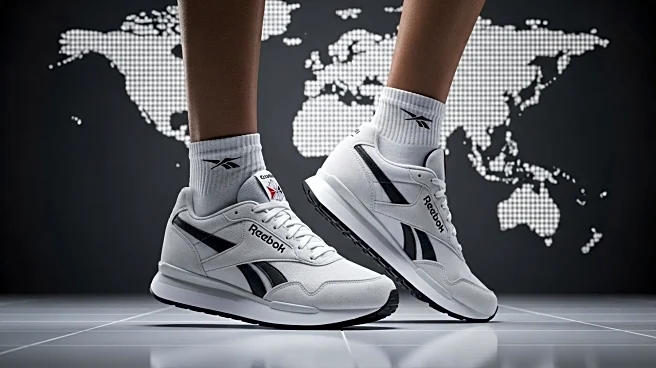What's Happening?
Joe Foster, co-founder of Reebok, shares the history of the brand's rise from a small factory in Bolton, Greater Manchester, to a global sportswear giant. Foster joined the family business, J.W. Foster and Sons, in 1952, learning the craft of making athletic shoes. In 1958, he and his brother Jeff launched Reebok, initially named Mercury, but changed after discovering the name was trademarked. The brand gained popularity in the U.S. after receiving high ratings in Runner's World magazine and further expanded when actress Jane Fonda used Reebok shoes in her aerobics videos. The company grew from a $9 million running company to a $900 million aerobics women's company in four years.
Why It's Important?
Reebok's transformation from a small family business to a major player in the sportswear industry exemplifies the impact of innovation and strategic branding. The company's success in the U.S. market highlights the importance of media influence and celebrity endorsements in driving consumer demand. Reebok's ability to adapt to changing market trends, such as the aerobics boom, underscores the significance of flexibility and foresight in business growth. The brand's journey offers valuable insights into the dynamics of global expansion and the role of cultural shifts in shaping consumer preferences.
Beyond the Headlines
The story of Reebok's origins and success reflects broader themes of entrepreneurship and the evolution of the sportswear industry. Foster's narrative emphasizes the importance of heritage and innovation in building a lasting brand. The exhibition at Bolton Library serves as a reminder of the company's roots and its potential return to local manufacturing, highlighting the cultural and economic impact of global brands on their communities.










